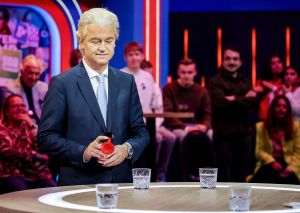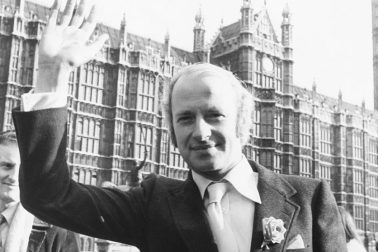This is one of the most devastating but, at the same time, restrained and balanced indictments, among the many that have appeared, of the conduct of the Roman Catholic Church in the face of the Holocaust. It is restrained in that it avoids extreme positions, let alone emotive language, even disagreeing with the expression ‘Hitler’s Pope’ as an apt description of Pius XII; but it is devastating in the unremitting detail, including some new revelations, with which it makes its clinically incisive approach to this painful subject.
The book breaks important new ground in two directions. It first of all assesses the wartime pope not, as in most similar works, in isolation from but in intimate connection with the Church as a whole, both at that point in history and within the overall context of its heavy inheritance of anti-Semitism. It also takes a new direction in making a bold suggestion as to how the Catholic Church can do two necessary things: make sufficient moral restitution to the Jews for its role in the Holocaust and also, by addressing an entirely new look at the New Testament, unburden itself for ever from its ugly anti-Judaic past.
Not a word is wasted in a book that can be read only with profit by all, including those Catholics who like myself are concerned with and interested in Pope Pius XII. I had a private audience with him soon after the war which actually came about by accident; it was nonetheless an awe-inspiring experience to stare into the luminous eyes of that extraordinary man from the other side of his desk in the solitude of his study at Castel Gandolfo. It was the beginning of a life-long fascination, continued years later, when I translated the long first volume of the 12-part Acts and Documents of the Holy See and the Second World War. I also had many long conversations in Rome and elsewhere with people who had known the pope, including Israel (later ‘Eugenio’) Zolli, former chief rabbi in Rome.
This book, perhaps ironically, paves the way for a treatise which needs to be written setting out, as can be done, the only defence possible for the conduct of Pope Pius during the war. The defence in question, however, though persuasive, suffers from two serious objections. One is that it would involve revealing facts about Pius XII’s private life which some would find upsetting. Secondly it would involve the invoking of a premise which most, at least ‘hardcore’ (that is self-styled ‘traditionalist’), Roman Catholics would find repugnant and unacceptable.
The premise is that Pius XII could act in no other way than he did because of being imprisoned by the ‘System’ which prevailed in the pre-Vatican Council Church, still dominated as it was by its authoritarian, exclusivist and anti-Semitic past. He feared that if he were to put out an unambiguous condemnation of Nazism, and its ghastly attempt to exterminate the Jews, it would prove mortally dangerous for the unity and strength of the Church. It might, the longer it was postponed, have caused a schism by putting the Catholics of Germany, most of whom supported Hitler, under the intolerable strain of conflicting loyalties. (It might well, on the other hand, if made in time, have been successful and changed history.)
The so-called ‘defence’ favoured by many Catholics is that Pius refrained from making an outright condemnation of Hitler because he was afraid that the response would be a stepping-up of the murder of Jews. This argument is not only, as Goldhagen shows, untenable, but it is – in a manner all unknown to the well-meaning but naive Catholics who advance it – an insult to the memory of Pacelli. It implies that he was a pitiful moral coward, so overawed by Hitler that he remained silent in the face of the greatest organised evil in the whole of history. It would, if true, be an example of papal impotence without parallel in Catholic history. (The uncomfortable fact remains that Pius did harbour a haunting secret terror of the Nazis which he tried ruthlessly to suppress.)
Pius worked tirelessly for Jews as individuals, personally saving many thousands. He also worked tirelessly for peace without (somewhat absurdly) disturbing the ‘neutrality’ of the Holy See. His dream was for a resettlement of Europe after the defeat of that atheistic communism which he hated above anything else on earth. Regarding his overall dealings with Nazi Germany, he thus did everything except the one thing he should have done.
Pius’s XII’s private life is also relevant, for it had such a strong influence on his public one. The circumstances of his birth give a clue – difficult, today, even to believe – to that strange, forgotten world of the Catholic Rome of 1876. After he was born, his mother commanded that no one should cuddle or fondle him, or even touch him further than was necessary for clothing and feeding, until he was baptised. Before that time his body was considered to be a temple of the devil which would contaminate anyone who touched it.
Being delicate, he did all his studies, including those for the Church, at home, never mixing with anyone from the outside world. He then went straight into the diplomatic service of the Church, at no time gaining any ordinary, pastoral, priestly experience. Even after his advancement through the ecclesiastical ranks, he kept himself as unsullied as possible from contact with other human beings. He retired behind an imaginary screen to protect his, eventual, semi-divine person and became more and more aloof and solitary as the years went by. No one, including top Church figures, was allowed to address him, even on the telephone, except on his knees. When he ventured out from the Vatican it was in a car specially designed for him by Cadillac motors in which the back seat was replaced by a solitary throne.
There was, as hinted above, a dark and hidden part to Pius’s inner soul which was precisely known to no other human being with the exception of his confessor Cardinal Bea. Only one other person may have had some inkling of it because of the loud blood-curdling screams that sometimes came from the Pope’s bedroom in the dead of night during one of his nightmares. This person was his companion and house-keeper for 40 years, the German nun Sister Pasqualina.
In 1954 it was thought that he was about to die; but a miracle was announced, accompanied by the report that His Holiness had had a vision. What actually happened has never been mentioned in any official records, namely the cellular rejuvenation treatment he received by way of painful injections from the controversial Swiss doctor, Paul Niehans. In his twilight years he moved further and further outside the real world. He ate and slept less than ever and had increasingly frequent hallucinations. He had to be restrained at the highest level from officially giving Our Lady the title of Mediatrix of All Graces and co-Redemptrix with Jesus Christ.
This riveting but disturbing book ends with suggestions of ways in which the Church can make some amends and redeem itself for the future. Short of re-writing the Gospels, however, to purge them of their anti-Judaic libels, it is difficult to see how this can be fully achieved. The calling of a mighty international and inter-religious Congress, as suggested, might make for a hopeful beginning.
Meanwhile, there are some practical steps which the Holy See could and should be taking, such as severely reprimanding the Latin Patriarch (Catholic Archbishop) of Jerusalem for his encouragement of murderous Palestinan terrorists wishing to destroy Israel. This is a very wicked and harmful form of activity, and, in not stamping on it vigorously, the still potentially great and lovable Catholic Church persists in showing how slow it is to learn from past mistakes.




Comments